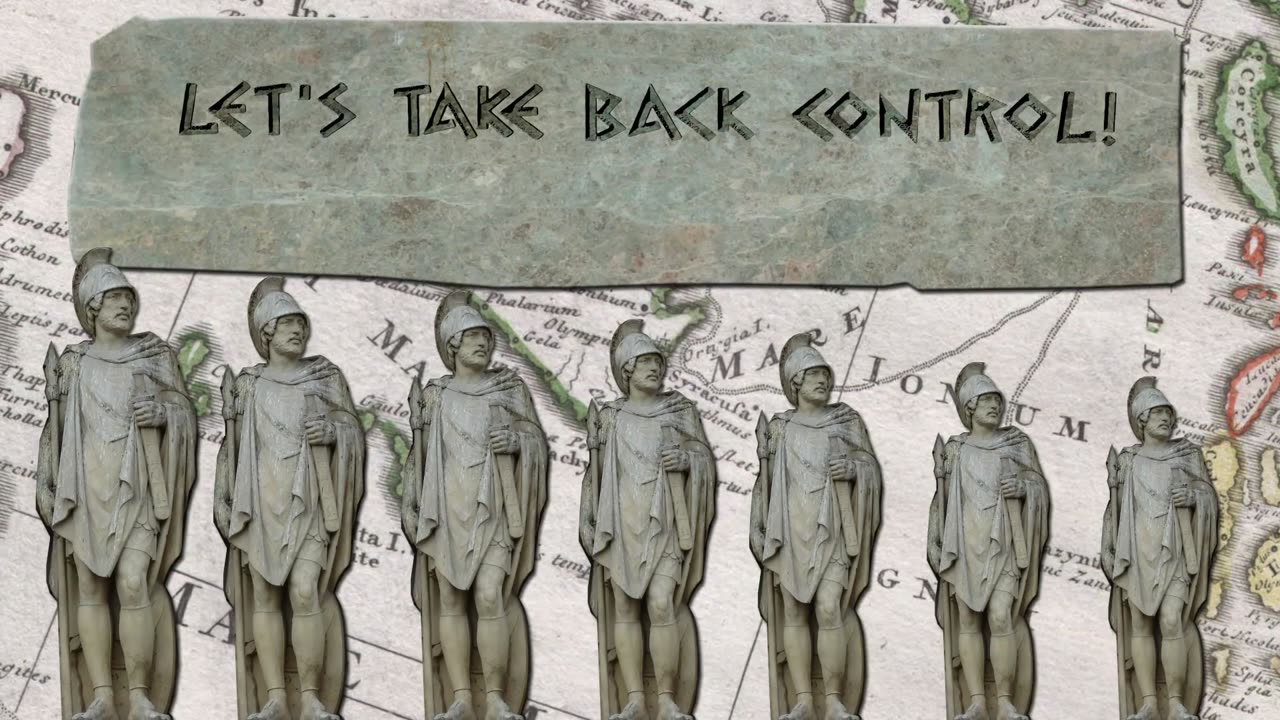Premium Only Content

Why Socrates Hated Democracy
Socrates, the great philosopher of ancient Athens, is known for his critical thinking and his unwavering commitment to truth and justice. However, he was not a fan of democracy, the political system that Athens was famous for. In fact, he was so critical of democracy that he was sentenced to death by the Athenian government. So why did Socrates hate democracy?
One reason was that Socrates believed that democracy could easily lead to tyranny. He argued that in a democracy, people would vote for leaders who would promise them the most, rather than those who were the most qualified or virtuous. As a result, the government would be controlled by demagogues who would manipulate the public for their own benefit. This would ultimately lead to a loss of individual freedom and a concentration of power in the hands of a few.
Furthermore, Socrates believed that democracy was a system that catered to the lowest common denominator, rather than the best and brightest. He argued that democracy would give a voice to the uneducated and the ignorant, who would make decisions based on emotion rather than reason. This would result in a government that was ineffective and unstable, as people would be more interested in their own personal interests rather than the common good.
Finally, Socrates believed that democracy was not the best system for promoting virtue and morality. He argued that in a democracy, people would be more interested in gaining power and wealth than in developing their character and becoming virtuous individuals. This would result in a society that was morally bankrupt and lacking in values.
In conclusion, Socrates' dislike of democracy was rooted in his belief that it was a system that was prone to corruption, ineffective in decision-making, and lacking in moral values. While democracy may have its flaws, it is important to remember that it has also been the foundation of many successful and prosperous societies throughout history. It is up to us to ensure that our democratic systems are structured in a way that promotes the common good and safeguards against corruption and abuse of power.
-
 9:26
9:26
Jamesons Travels
1 day ago $5.51 earnedShawn Ryan CLOWNS Intel Expert & It GETS WEIRD!
35.3K6 -
 2:09:52
2:09:52
Jewels Jones Live ®
1 day agoTRUMP'S GOLDEN AGE | A Political Rendezvous - Ep. 105
59.9K31 -
 1:14:28
1:14:28
Michael Franzese
18 hours agoThe Hidden Cause of LA's Deadliest Fires in 2025?
79.1K150 -
 3:59:45
3:59:45
Bitcoin Sports Network
11 hours agoMax & Stacy Invitational Day 2 Part 1 - LIVE from El Salvador
139K11 -
 1:34:30
1:34:30
The Criminal Connection Podcast
5 days ago $2.61 earnedEL PACO: Gypsy Family Wars, Bare Knuckle Boxing, Assassinations and Spirits!
66.9K4 -
 51:43
51:43
Brewzle
1 day agoI Found Some AWESOME Stores Bourbon Hunting in Des Moines, IA
56K3 -
 1:16:54
1:16:54
Kyle Rittenhouse Presents: Tactically Inappropriate
1 day ago $3.94 earnedReplacing Matt Gaetz Pt. 2
37.4K16 -
 16:08
16:08
inspirePlay
1 day ago $0.94 earnedCan You Sniff Out the Golf Imposters Before They Wreck the Score?
29K4 -
 22:57
22:57
RTT: Guns & Gear
1 day ago $5.06 earnedPSA Dagger vs. Bear Creek Arsenal BC-102 | The Better Pistol For The Poors
52.9K11 -
 8:28
8:28
MichaelBisping
12 hours agoBISPING: "Islam WILL RETIRE after UFC 311!?" | Makhachev Wants Belal or Shavkat at WELTERWEIGHT
33.1K5